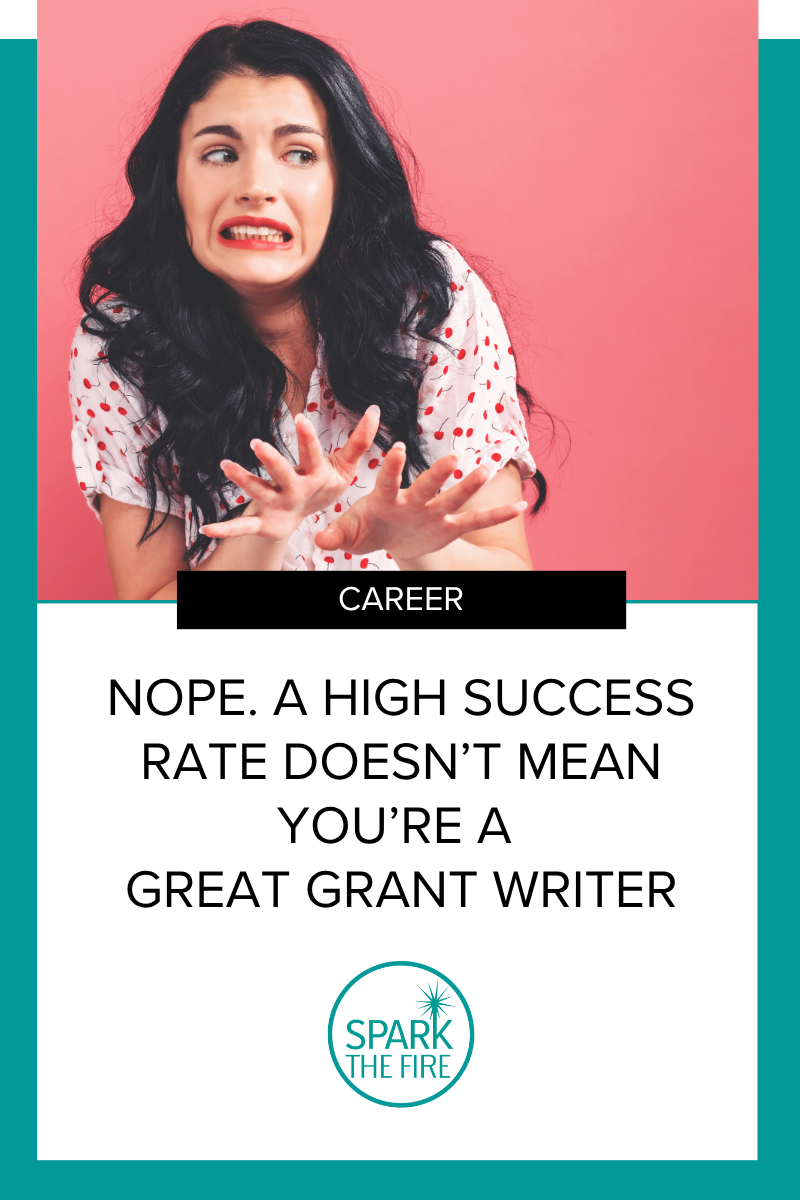When people ask me about my grant writing success rate, I usually pause. It's not because I don't know the numbers. It's because the numbers don't tell the whole story.
I smile and say: I don't track it, because I don't believe in it.
Why?
Because success rates in grant writing are almost always misleading—and sometimes, they distort the work entirely.
📖 Let Me Tell You Two Stories
Story One: I worked with a senior center that had a very limited grant writing budget. We were careful. We only applied for grants where we had strong alignment and built relationships with the funders in advance. We applied for five grants and all five were funded. That's a 100% success rate. Pretty amazing, right?
Story Two: I also worked with an overseas HIV+ orphanage. I told the board up front that I wasn't finding good prospects for grants. Why? Because at that time, very few U.S. foundations were funding international HIV programs through grants. Most organizations doing this work relied on fundraising events with celebrities or individual donors. Grant funding for that sector was incredibly narrow.
But the board wanted to try anyway. So I looked for the few possible openings—and found a small handful of pharmaceutical company grants. They weren't a perfect fit, but they were some of the only options available.
I submitted five proposals. Four were declined. One was funded. 20% success.
Here's the thing: both of these outcomes represent exactly the same quality of work. The difference wasn't my skill as a grant writer—it was the funding landscape each organization operated within. The senior center existed in a space rich with aligned funders; the orphanage operated in a funding desert.
Yet if you looked only at success rates, you'd think I was a superstar with one client and barely competent with the other. This is precisely why success rate metrics create a false picture of effectiveness. They strip away the context that actually determines outcomes and reduce complex strategic decisions to a simple percentage.
So if you average those two clients, what's my success rate?
It doesn't matter. Because that number doesn't tell the story.
Why I Don't Believe in Advertising Success Rates
Here's what I've come to believe, after two decades helping clients and students secure grant awards:
Advertising a grant writing "success rate" is often more about marketing than meaning.
It flattens a nuanced process into a vanity metric. And honestly? It makes me wonder if the grant writer is selectively applying for only the easiest, safest grants—because they don't want to "mess up" their percentage. Or if they are only working with established organizations and turning away small and rural nonprofits that need support as much as the big guys.
That's not strategy. That's self-protection.
What makes a grant writer truly effective isn't their win rate—it's their ability to deeply understand funder priorities, build authentic relationships, and match the right opportunities to the right organizations at the right time.
This Work Is About Risk Management
Smart grant writers help organizations assess:
Is this grant truly a good fit?
Have we built a relationship with the funder?
Do we have the right story, budget, and timing?
And even if we don't get funded—will we learn something valuable?
Sometimes the answer is, "Let's wait." Sometimes the answer is, "Let's go for it—even if the odds are slim"—because sometimes, you can only build a relationship with a grantmaker after you've received a decline and some grantmakers won't even fund an organization unless it has applied at least three times.
Either way, we're managing risk with intention and only applying for opportunities where the grantmakers' and clients' missions are aligned. That's real strategy.
Ask Better Questions
So instead of asking, "What's your success rate?" Try asking:
How do you decide which grants to pursue?
What's your approach to risk and fit?
How do you define a win—even if a grant isn't funded?
That's where the real work lives.
At Spark the Fire…
We don't chase success rates. We teach our students to think like strategists, write with heart, and act with integrity.
Because the goal isn't a perfect scorecard, or earning six figures, or bragging about how much money you have raised. The goal is funding that moves meaningful work forward.
And that can't be summed up in a percentage.
The next time someone promises you a high success rate, ask yourself: What aren't they telling you? Because the best grant writers aren't the ones who play it safe—they're the ones who understand that sometimes the most important work happens in the spaces where success is uncertain, but the mission is clear.
That's the kind of grant writer your organization deserves.
I got a little on my soapbox about this topic, but I’d love to hear what you think. Use the comments below!

